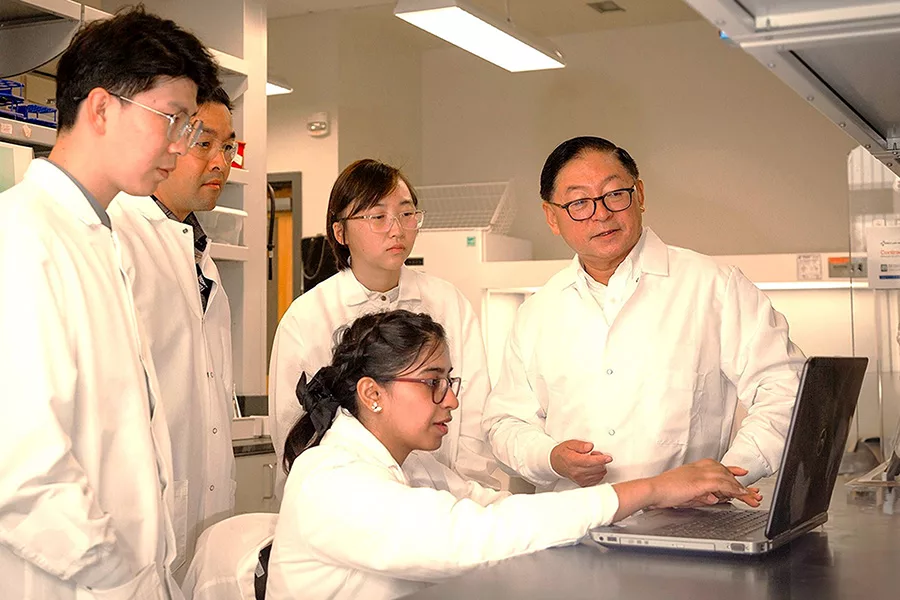
Home » WSU Tri-Cities scientist finds new low-cost method for making biofuel
WSU Tri-Cities scientist finds new low-cost method for making biofuel

Developing new and sustainable fuels and products from biomass, Professor Bin Yang works with members of his lab at WSU Tri-Cities. Yang led research into new, economically feasible production of sugar for biofuels.
Courtesy Washington State University Tri-CitiesMay 8, 2025
A research team led by a Washington State University Tri-Cities scientist has found a new inexpensive way to turn corn stalks and other crop waste into sugar for the production of biofuels.
Bin Yang, a professor of biological systems engineering, collaborated with researchers at the University of Connecticut, National Renewable Energy Laboratory, the U.S. Department of Agriculture’s Forest Products Lab and Washington University in St. Louis on the project, according to a release.
Their recently published research describes a new cheaper method for treating corn stover – leftover corn stalks, husks, and other materials – so its cellulose can be more easily broken down into the sugars needed for biofuel.
“Inexpensive sugar is the key to commercial success for new technologies that make fuels and useful products from renewable biomass,” Yang said in a statement.
Cellulose is complex and not easily broken down. However, by treating crop waste with alkaline enzymes, the researchers calculated that the resulting sugar could be sold for as low as 28 cents per pound, making it competitive with low-cost imported sugar.
Latest News Energy Food & Wine Science & Technology
KEYWORDS May 2025
Related Articles
Related Products





